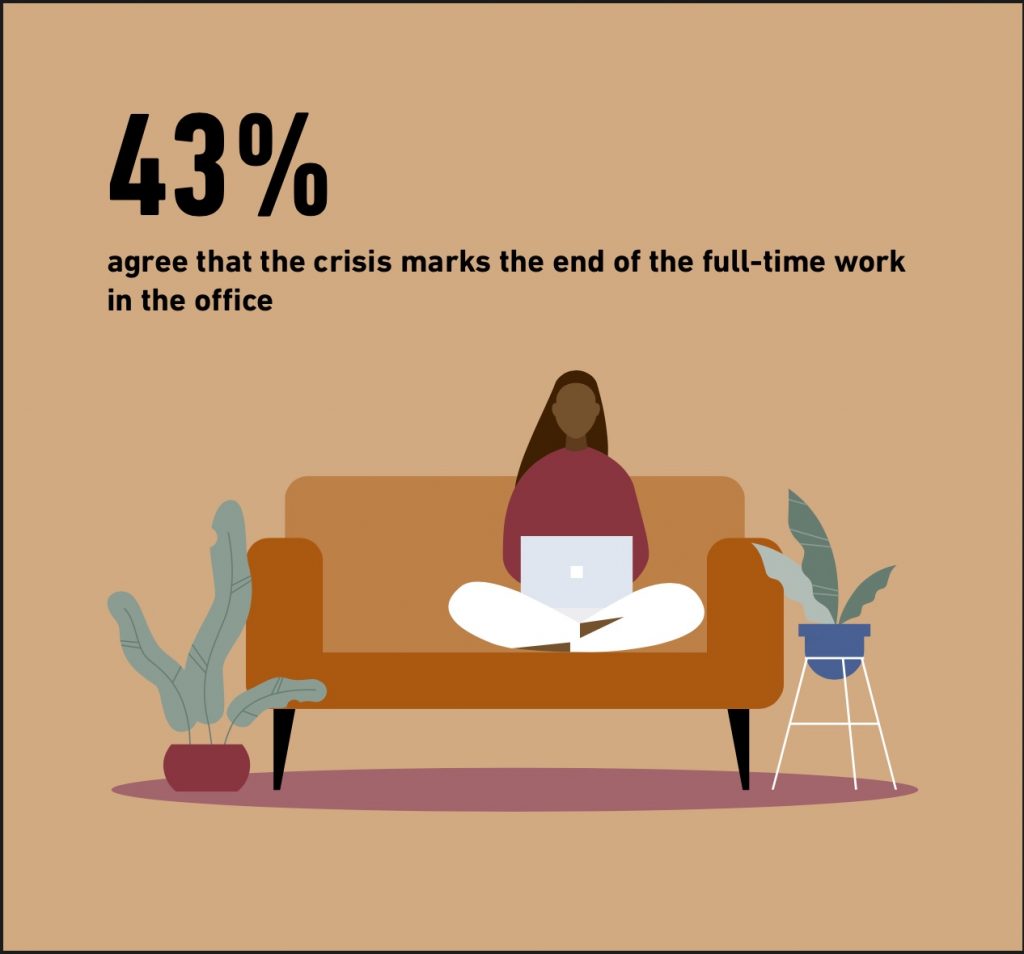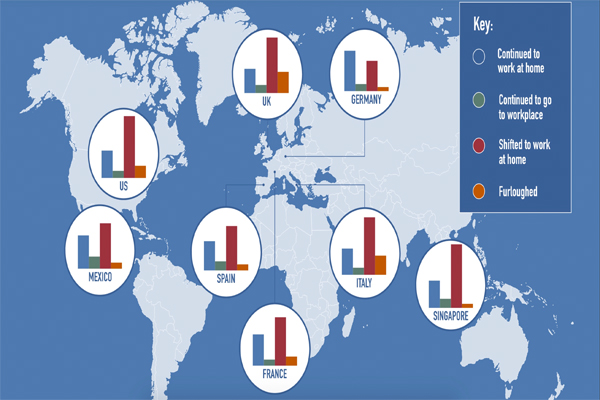ManpowerGroup’s latest survey has provided a glimpse into what workers want from their employers post Covid-19. The Future for Workers, by Workers, reveals that most workers globally believe the COVID-19 crisis marks the end of full-time work in the office and are looking for a hybrid model that blends work and home.
After health concerns for themselves and their family, workers are most worried about returning to an old way of working and losing the flexibility they have gained. ManpowerGroup’s research points to employers needing to adopt a “people first” approach and to reimagine a future of work that works for organisations and individuals alike – prioritising health, wellbeing and caring responsibilities.
NEW NORMAL STAFF PRIORITIES
The survey of more than 8000 workers in eight countries (the second study in its What Workers Want series), reveals that workers everywhere have three key priorities for the Next Normal:
- They want autonomy and a personalised version of a Hybrid Workplace with the opportunity to work remotely, yet not all the time.
- Learning on demand – more opportunities to learn virtually and develop skills to stay employable.
- One Life – a focus on blending work and family life for the long term.
“What started as a health crisis has evolved into an economic and social crisis. While thankfully a small proportion of the population will be infected by COVID-19, 100% of us will be impacted by it,” commented Jonas Prising, ManpowerGroup’s Chairman & CEO. “The data shows us how workers around the world are feeling about returning – concerned for their health and employment security, while seeking flexibility which allows them to better balance work and home. Those organisations that prioritise emotional wellbeing and flexibility while demonstrating how they create social impact in challenging times will be best positioned to attract and retain the best talent and ensure workers are confident, healthy and productive.”

VARIED PERSPECTIVES
When economic outlooks are uncertain, employability matters most to workers, with 9 in 10 workers saying that “simply keeping their job is most important”. Yet how workers feel about a return varies by gender and career stage:
- Gen-Z versus Millennials: Gen Z is most keen to return to the workplace to develop their careers and socialise (51%), while millennials are the least positive (38%).
- Gen X versus Boomers: Gen X value being in the workplace to concentrate and collaborate away from household responsibilities. Boomers choose socialising and collaborating with colleagues (34%) as the top reason to return.
- Gender divide: Almost half of men (46%) feel positive about returning, only one-third of women (35%) feel the same. Women report feeling more concerned or nervous about the return. Both men and women rank not having to commute and having flexibility to work when convenient in their top three benefits of working from home.
- Working parents: Men with children list spending time with their family as a top benefit to working remotely. Women feel more negatively about going back to work, with an increasing in concern for the younger child (61% for children ages 0-5; 53% for kids aged 6-17 and 50% for 18+ dependants).
GLOBAL FINDINGS
The study also revealed that UK and Italy report the highest proportion of people furloughed as government schemes impacted fast with high proportion of businesses taking advantage of wage replacement programmes. Workers in Mexico and the US are most likely to have chosen to work from home or to be self-isolating to protect themselves and others.

Workers in Mexico, Spain and US are the most nervous and least relieved about returning to work. Employees in the UK and US – where response has been most politicised and fractured – are the most reluctant to return. The survey also found that overall it’s the large companies that need to do more to persuade staff to return as those workers are the most concerned about exposure to greater risk.
Being able to both socialise (30%) and collaborate (29%) with colleagues in person is what workers find most beneficial about returning to their workplace. However, 43% agree that the crisis marks the end of the full-time work in the office, with 8 in 10 wanting more remote work to better balance family life. On a positive note, the report reveals that most employees believe they’ll have a better work life blend going forwards.
To download the full report The Future for Workers, by Workers: Making the Next Normal Better for All click here.







































